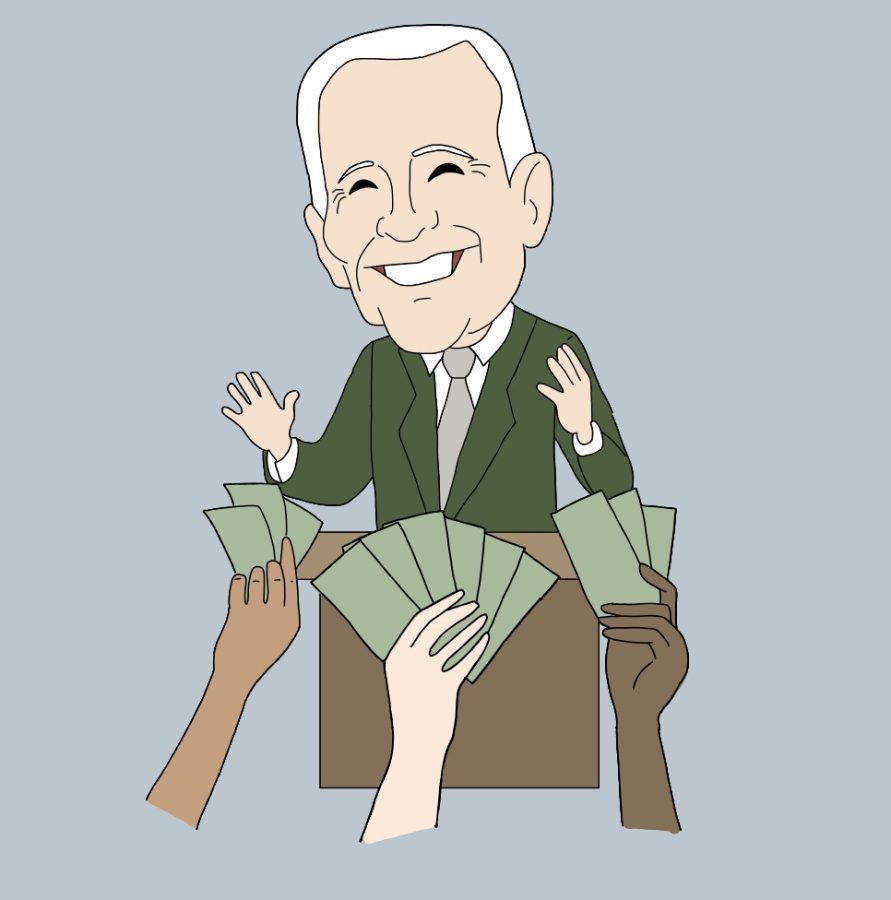FOCUS: A whirlpool of worries surround ‘Build Back Better’s’ delay in the Senate
Global warming has been a pressing matter, and on April 22, 2021, President Joe Biden set a target to cut 2005 greenhouse gas emissions in half by 2030. On November 15, 2021, President Biden signed a trillion-dollar infrastructure bill, the Infrastructure Investment and Jobs Act, for the creation of high-speed Internet towers, upgraded airports and 700,000 jobs.
SCHS math teacher Lauren Hasty believes upgrading infrastructure is important for the U.S.
“Our infrastructure needs to be worked on in our country if we want to stay a modern country; otherwise, we will just keep crumbling apart,” Hasty said.
A report co-published by the United Nations Office for Project Services, the United Nations Environment Programme and the University of Oxford shows that 79 percent of all greenhouse gas emissions stem from infrastructure. The current Infrastructure Investment and Jobs Act does not meet the level of investment scientists believe is necessary to prevent global warming from worsening.
Hasty believes global warming is an issue that should be addressed as soon as possible.
“We will keep on using oil, and we won’t make any change at all,” Hasty said. “We have to do that. We had to do that ten years ago.”
According to Manish Bapna, president and CEO of the Natural Resources Defense Council, the Infrastructure Investment and Jobs Act is necessary in order to make way for congress to pass the Build Back Better Act. The goal of the act is to fight climate change through clean energy and electric vehicle tax credits, possibly getting the U.S. about halfway to Biden’s goal of cutting 2005 greenhouse gas emissions in half. The bill was passed by the House of Representatives but has hit a snag in Congress.
With the Build Back Better Act being held up in Congress, some SCHS students and staff members are wondering if the government is the only group of people obligated to help fight climate change. Freshman Vedanth Vijay believes the wealthy are not obligated to assist with these problems but hopes they will.
“These are big issues that affect us all, and everyone should be trying to contribute,” Vijay said. “Of course, I would like to see them (the wealthy) using their wealth to help out, but it’s not their obligation.”
Contrarily, Hasty thinks that people with economic power are morally obligated to help out with community problems.
“They don’t want to contribute after they have been taking and taking and taking from the industry. Especially if they have cases where they have been polluting because of their industries. They definitely need to give back,” Hasty said. “They definitely need to stop thinking that they are the only people in the world.”
Vijay also believes there may be other incentives for big businesses to help.
“You see this with people like Elon Musk and the positive media attraction that they gain when they announce, ‘I’m going to try and take us to Mars,’ (or) ‘I’m going to send satellites or communication satellites to Ukraine to help out.’ You see the kind of positive media feedback you get,” Vijay said.
Elon Musk proclaims to be a self-made billionaire, but Hasty refuted the idea that Elon Musk does not owe his success to anyone.
“If he’s trying to say that he did everything by himself, that’s absolutely false. He’s relying on people that were in public schools, that got their education at public schools. He’s relying on people who use public roads to get to work. He’s relying on this public infrastructure that’s been built before he came,” Hasty said. “For him to claim that he was absolutely self-made means he is denying that any of those resources existed.”
To aid the climate change effort, Hasty believes the older generation has to start moving their investments out of the oil industry and focus on renewable energy.
“Those resources that we were using for (the oil) industry, we need to transfer that into this new industry of renewable energy,” Hasty said. “That way it would be good for those people who can keep making money, it would be good for our country, it would be good for our world and it would be good for the youth of our country as well because this is your world.”


